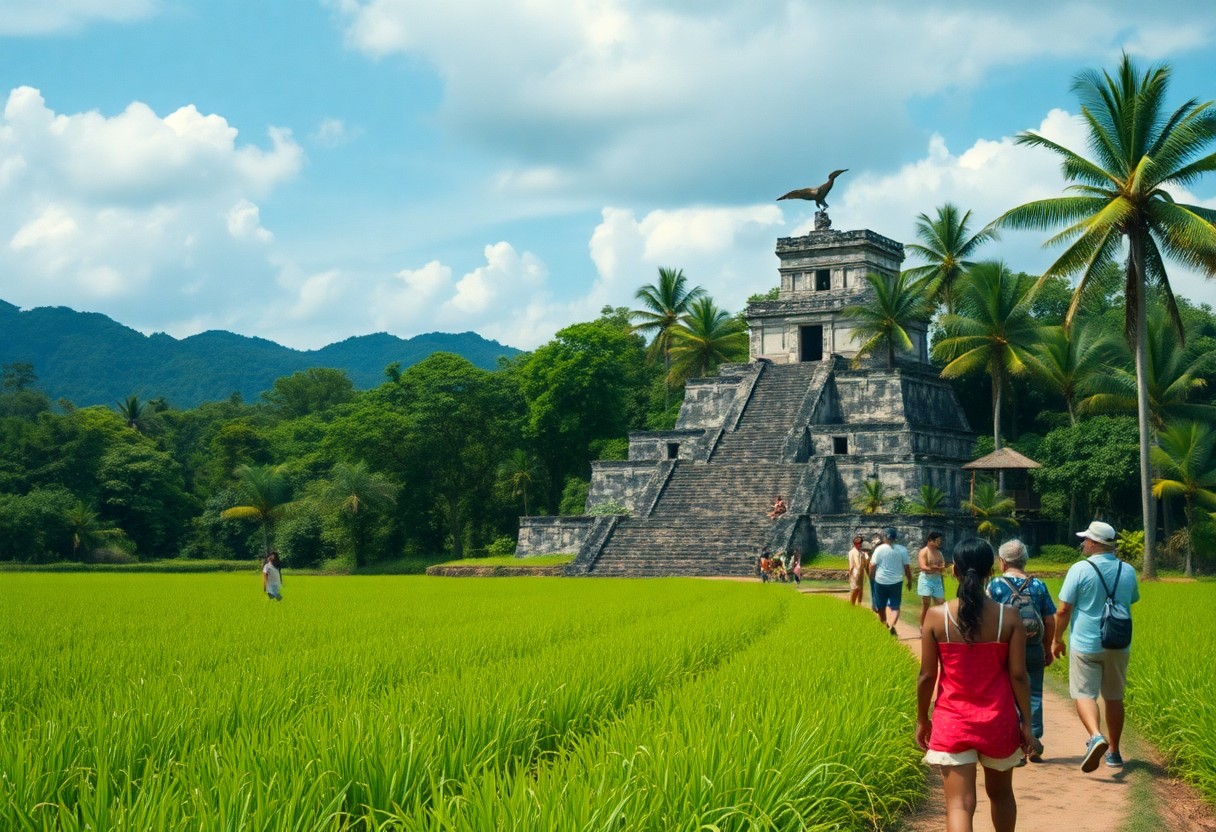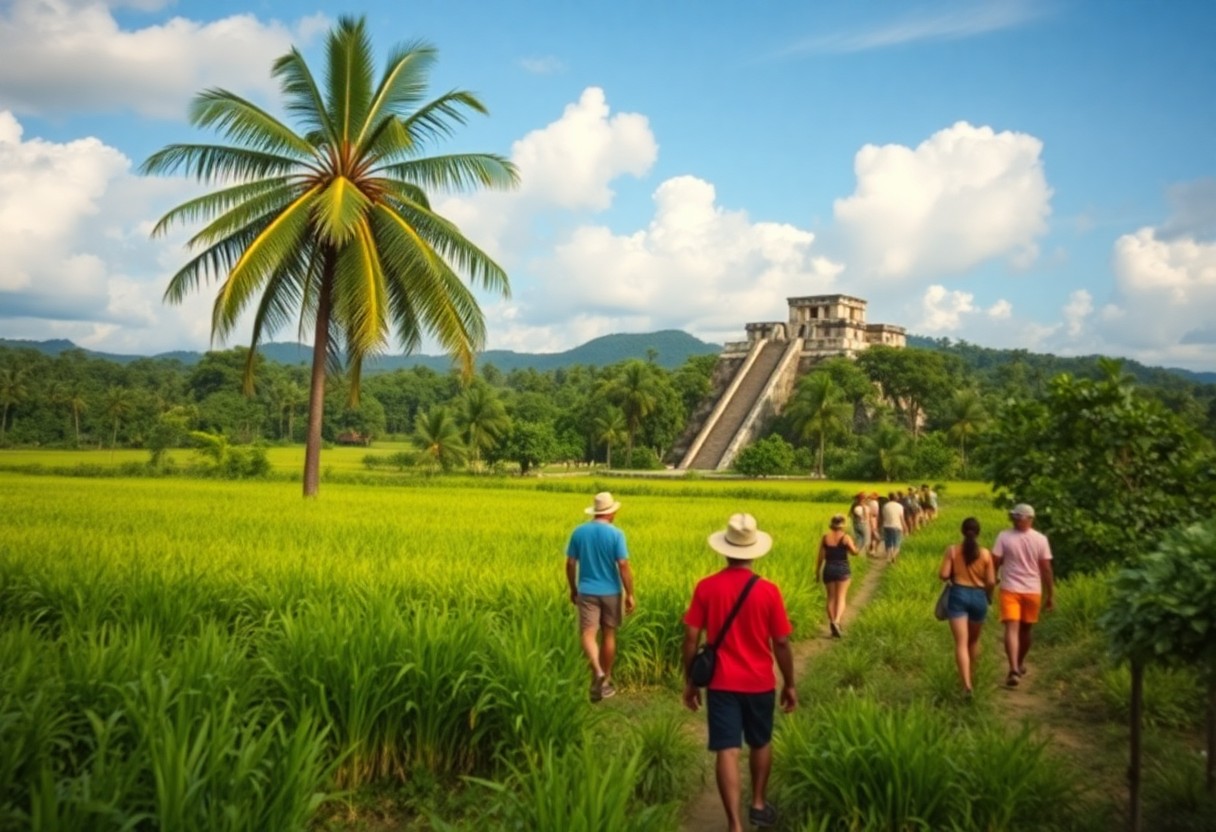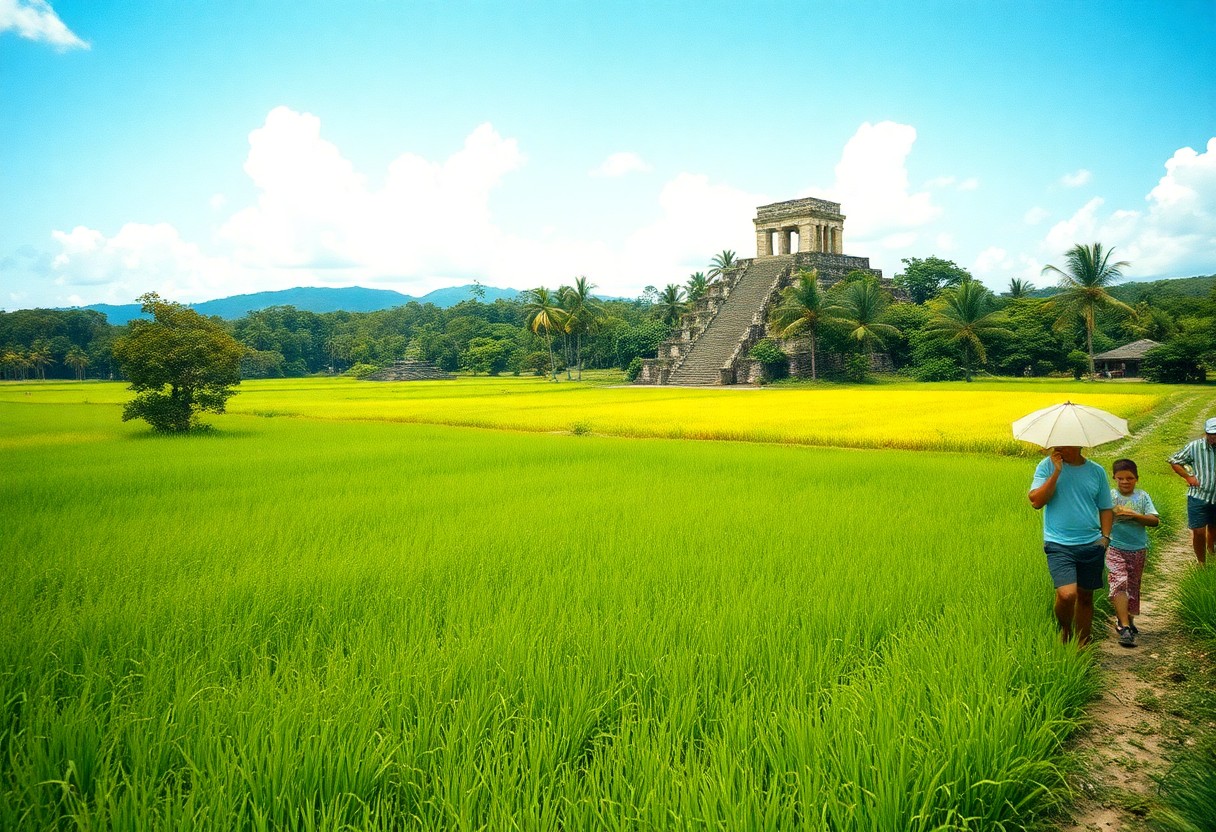The economic landscape of Belize is not only pivotal to the nation’s identity but also showcases a dynamic shift towards innovative sustainable industries. At the heart of this transformation lies a rich history rooted in agriculture, with key crops such as sugar, bananas, and citrus fruits playing a critical role in the early economic development of the country. As the nation evolves, the rise of ecotourism is creating new economic avenues, fundamentally reshaping the economic structure of Belize. By leveraging its pristine natural beauty, Belize attracts both global investors and tourists, establishing a distinctive economic model that harmonizes ecological preservation with economic advancement. Gaining insights into these transformative phases will deepen your understanding of Belize’s dedication to economic sustainability.

Exploring the Rich Historical Context of Belize’s Economic Development
The evolution of Belize’s economy has been a complex journey influenced by centuries of colonial legacies and extensive natural resource exploitation. The economic narrative of this region can be traced back to the early impacts of indigenous Maya civilizations, which laid the foundational principles for subsequent economic growth. The British colonial period introduced significant transformations, positioning the region as a resource-extraction economy. British settlers, commonly known as Baymen, focused on harvesting valuable timber and establishing trade networks that dramatically reshaped Belize’s economic foundations. This colonial backdrop set the stage for the following diversification of economic activities, paving the way for modern economic systems.
Understanding the Historical Impact of Logging on Belize’s Economy
Throughout the 18th and 19th centuries, the logging industry, particularly the extraction of mahogany and logwood, dominated Belize’s economic scene. This era witnessed British entrepreneurs establishing extensive logging operations that utilized advanced extraction techniques, significantly boosting the economy. The logging sector became a crucial economic driver, fostering a robust international trade network that positioned Belize as a leading timber exporter in the Caribbean region. This development not only spurred economic growth but also laid a foundational framework for future economic pursuits, showcasing the profound influence of the logging industry on the nation’s economic trajectory.
Examining the Rise of Sugar and Bananas as Economic Cornerstones of Belize
As Belize transitioned into the late 19th and early 20th centuries, agricultural products began to emerge as vital components of the economy. You will find that sugar and banana production overshadowed logging to become the primary economic activities in the region. These crops evolved into essential export commodities that transformed agricultural landscapes and opened new economic opportunities for local farmers and international traders. A closer look at Belize’s agricultural transformation reveals a multifaceted economic evolution, where sugar production gained prominence, leading to the establishment of large plantations employing innovative cultivation methods. Likewise, the banana industry emerged as a key export sector, creating significant economic prospects and serving as a crucial source of foreign exchange for the nation, aided by major international corporations like Fyffes.

Unveiling the Dramatic Growth of Belize’s Tourism Industry
When examining the economic transformation of Belize, it is evident that tourism has become a significant economic driver. This sector has rapidly expanded, drawing international visitors with its diverse landscapes and vibrant cultural experiences. Currently, tourism contributes approximately 40% to the nation’s GDP, highlighting a substantial shift from a traditional agricultural economy to a more diversified economic framework. The Belizean government has skillfully positioned the country as a top travel destination for those seeking authentic and sustainable travel experiences, capitalizing on its stunning natural beauty and rich cultural heritage.
Investigating the Surge of Eco-Tourism Adventures in Belize
Between 2010 and 2019, Belize experienced a remarkable increase in eco-tourism, reflecting a growing global interest in sustainable travel practices. Adventure seekers are increasingly attracted to the country’s pristine rainforests, diverse wildlife reserves, and significant archaeological sites. Sustainable tourism initiatives have become vital components of Belize’s tourism strategy, appealing to eco-conscious travelers who desire meaningful connections with nature and local communities. This focus on sustainability fosters a deeper appreciation for the environment and the rich fabric of local cultures, ensuring that Belize’s natural resources are preserved for future generations.
Harnessing Reef-Based Tourism for Economic Growth
The coastal tourism sector in Belize has dramatically transformed the nation’s economic landscape. You will be fascinated by the Belize Barrier Reef, a UNESCO World Heritage site that draws marine enthusiasts from around the globe. Activities like diving, snorkeling, and marine exploration have become essential revenue channels, attracting thousands of international tourists annually. This iconic reef spans approximately 300 kilometers, showcasing one of the most diverse marine ecosystems in existence. Marine tourism is estimated to generate over $180 million each year, providing critical support to local communities and conservation projects. The ecological importance of the reef, alongside its immense tourism potential, positions it as a vital economic asset, appealing to marine biologists, conservationists, and adventure lovers alike.
Here’s the content for the chapter and subsections:
Addressing the Economic Challenges Confronting Belize
While Belize faces a multitude of economic challenges that impede its growth trajectory, the nation must navigate a complex array of issues ranging from structural limitations to external pressures. Key obstacles include limited economic diversification, high unemployment rates, and vulnerability to global economic fluctuations, all of which curtail its potential for sustained growth and prosperity. Recognizing these challenges is crucial for understanding the comprehensive scope of Belize’s economic landscape and identifying potential pathways for overcoming them.
Tackling the Persistent Issue of National Debt
Throughout Belize’s economic history, the challenge of national debt has remained a significant concern. The country contends with one of the highest debt-to-GDP ratios in the Caribbean, which severely restricts the government’s capacity to invest in critical infrastructure and social programs. This financial burden hinders economic development and deters potential international investment, accentuating the urgent need for effective fiscal strategies to address this ongoing issue. Understanding the implications of national debt is essential for grasping the broader economic context of Belize.
Assessing the Threat of Natural Disasters to Economic Stability
On the environmental front, Belize is particularly susceptible to climate-related phenomena. Natural disasters such as hurricanes, tropical storms, and flooding pose significant threats to both the agricultural and tourism sectors, resulting in repeated economic setbacks and necessitating extensive reconstruction efforts. A thorough analysis reveals that natural disasters inflict not only immediate economic damage but also generate long-lasting vulnerabilities that disrupt agricultural productivity, compromise critical infrastructure, and undermine the tourism industry. Coastal areas are especially at risk, facing rising sea levels and intensified storm patterns that jeopardize both economic stability and the livelihoods of local communities.

Understanding Belize’s Import Reliance and Economic Vulnerability
To gain a comprehensive understanding of Belize’s economic framework, it is essential to acknowledge its significant dependence on imports. With limited domestic manufacturing capabilities, the nation heavily relies on importing fundamental goods such as machinery, fuel, and consumer products. This economic vulnerability indicates that nearly 50% of goods consumed in Belize are sourced from international markets, primarily the United States. While this reliance on imports presents challenges for local economic stability, it simultaneously emphasizes Belize’s integration into global trade networks. These imports are vital for supporting the nation’s infrastructure, promoting technological advancements, and meeting consumer demands.
Projecting the Future: An Optimistic Economic Outlook for Belize
Despite facing numerous economic challenges, Belize is strategically positioning itself for transformative growth through diversification and innovative economic strategies. The country is harnessing its natural resources, promoting sustainable tourism, and enhancing digital infrastructure to create new economic opportunities. Belize’s potential lies in its ability to balance traditional sectors such as agriculture with emerging industries like technology and eco-friendly services, which promise to bolster economic resilience and attract global investment.
Pioneering Sustainable Initiatives for Economic Growth in Belize
Belize is increasingly prioritizing environmental preservation alongside economic development. Governmental commitment to green initiatives, including renewable energy projects, conservation-focused tourism, and sustainable agricultural practices, reflects this dedication. These efforts aim to protect the country’s rich biodiversity while simultaneously creating economic pathways that enhance both ecological integrity and community development. This approach guides Belize toward a more sustainable future, benefiting both its populace and the environment.
Attracting Foreign Investment for Economic Growth and Development
In tandem with these economic strategies, Belize actively seeks to draw international investors across a variety of sectors. Targeted initiatives in tourism, agriculture, and emerging digital industries promise lucrative returns and foster strategic partnerships. The government is implementing investor-friendly policies aimed at positioning Belize as an attractive destination for global capital. Unique investment opportunities abound in sectors such as eco-tourism, renewable energy, and agricultural technology. The nation’s advantageous geographical location, coupled with progressive economic policies, enhances its appeal as an investment destination. Potential investors are attracted by Belize’s stable political climate, tax incentives, and commitment to sustainable development, all of which help mitigate traditional investment risks while providing promising long-term growth opportunities.
Reflecting on the Comprehensive Economic Transformation of Belize
Considering these insights, it becomes clear how Belize has meticulously redefined its economic landscape, transitioning from traditional agriculture to a multifaceted, sustainable economic model. Your understanding of the country’s economic evolution emphasizes a dynamic shift towards services, tourism, and eco-tourism. By strategically leveraging its natural resources and rich biodiversity, Belize has established a resilient economic framework that balances growth with ecological preservation. You will appreciate how the nation has effectively diversified its economic sectors, positioning itself as an attractive destination for international investment and sustainable development. This adaptive strategy ensures that Belize continues to cultivate a strong and forward-looking economic vision that promises enduring prosperity.
Frequently Asked Questions About Belize’s Economic Landscape
Q: What are the core sectors driving Belize’s economic growth?
A: The economy of Belize is primarily supported by three fundamental sectors: agriculture, tourism, and services. Agricultural exports, including sugar, bananas, and citrus fruits, contribute significantly to national income. The tourism sector, specifically ecotourism, generates substantial revenue by leveraging Belize’s diverse natural landscapes and marine ecosystems. Additionally, service industries such as financial services and international trade complement these core economic drivers.
Q: How does ecotourism influence Belize’s economic development?
A: Ecotourism serves as a strategic economic pillar for Belize, attracting global travelers eager for sustainable travel experiences. The Belize Barrier Reef, UNESCO World Heritage sites, and extensive national parks offer unique opportunities for eco-conscious visitors. This sector not only generates direct income through tourism-related expenditures but also benefits local communities by creating employment opportunities in conservation, hospitality, and guided adventure services.
Q: What major challenges does Belize encounter in maintaining economic stability?
A: Belize faces economic hurdles such as vulnerability to external economic fluctuations, climate change impacts on agriculture, and dependence on a limited range of export commodities. In response, the nation actively diversifies its economic portfolio by investing in renewable energy initiatives, expanding service-oriented sectors, and promoting sustainable tourism development. International cooperation and strategic economic policies are vital for mitigating potential financial risks and reinforcing long-term economic resilience.
The Article Belize’s Economy Explained: From Agriculture to Ecotourism appeared first on Belize Travel Guide
The Article Belize’s Economy: Agriculture to Ecotourism Insights Was Found On https://limitsofstrategy.com